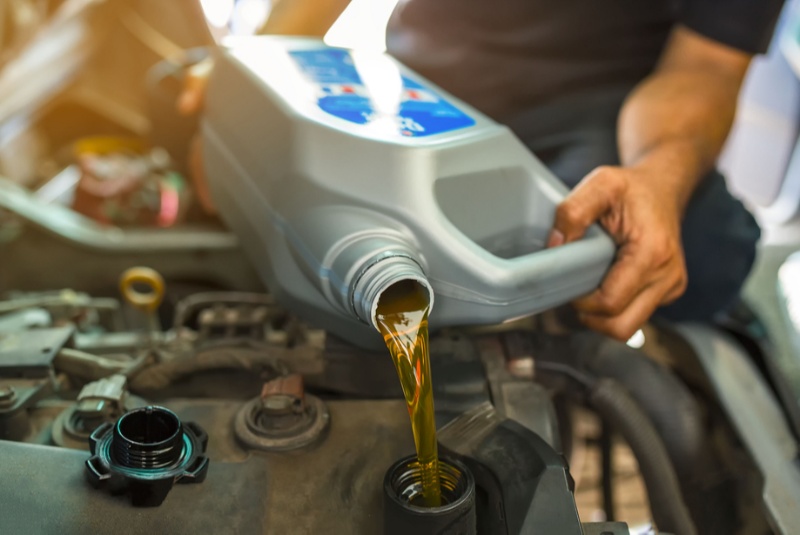Car maintenance is essential for keeping your vehicle in good working condition and ensuring a smooth, safe ride. However, it can be quite expensive, particularly for those on a budget. Fear not! In this article, we will provide you with practical tips and tricks to save money on car maintenance, repairs, and gas, without compromising your safety or your vehicle's performance.
- Perform Regular Maintenance
One of the most effective ways to save money on car repairs is to prevent them in the first place. Regular maintenance helps to identify and fix small issues before they turn into costly repairs. Some key maintenance tasks include:
a. Changing the engine oil and filter every 3,000 to 5,000 miles, or as recommended by the manufacturer.
b. Inspecting and replacing air filters, spark plugs, and other consumable parts as needed.
c. Rotating and aligning tires every 6,000 miles or as recommended by the manufacturer.
d. Checking and topping off fluid levels, such as coolant, brake fluid, and transmission fluid.
e. Inspecting and replacing brake pads and rotors when necessary.
- Learn Basic DIY Repairs
With a little effort, you can learn to perform some basic car repairs and save a considerable amount of money. YouTube and online forums are excellent resources for learning how to change your oil, replace air filters, or change a flat tire. Investing in a basic set of tools and a repair manual for your vehicle can also help you save on repair costs in the long run.
- Shop Around for the Best Prices
If you need professional assistance for repairs or maintenance, shop around for the best prices. Compare quotes from multiple repair shops and look for online reviews to ensure the quality of their work. Don't be afraid to negotiate or ask for a discount, as many repair shops are willing to offer better prices to secure your business.
- Use Quality Aftermarket Parts
While it may be tempting to opt for the cheapest parts available, using low-quality parts can lead to more frequent repairs and even compromise your safety. Instead, consider purchasing quality aftermarket parts, which are often more affordable than their original equipment manufacturer (OEM) counterparts. Make sure to read reviews and consult with a trusted mechanic to ensure the aftermarket parts you choose are reliable and compatible with your vehicle.
- Improve Your Gas Mileage
Improving your gas mileage can lead to significant savings on fuel costs. Here are some tips to help you get the most out of your tank:
a. Drive smoothly and avoid sudden acceleration or braking, as aggressive driving can increase fuel consumption.
b. Keep your tires properly inflated, as underinflated tires can lower your gas mileage.
c. Remove unnecessary weight from your vehicle, such as heavy items in the trunk or a roof rack when not in use.
d. Use the appropriate grade of motor oil for your engine, as specified in your owner's manual.
e. Perform regular engine tune-ups to ensure optimal performance and efficiency.

- Take Advantage of Rebates and Discounts
Many auto parts stores and repair shops offer rebates, discounts, and coupons on services and products. Be on the lookout for these deals and take advantage of them when possible. Additionally, some auto parts stores offer loyalty programs or free services, such as battery testing and installation, which can help you save even more.
- Plan Your Trips Wisely
By combining errands and planning your trips, you can reduce the amount of time and miles spent on the road, ultimately saving on gas and wear and tear on your vehicle. Additionally, try to avoid peak traffic hours and opt for less congested routes when possible to save on fuel consumption and reduce stress on your engine.
- Maintain Your Car's Exterior and Interior
Keeping your car clean and well-maintained not only enhances its appearance but also helps to protect it from the elements, prevent rust, and maintain its resale value. Wash your car regularly, wax it periodically, and keep the interior clean and clutter-free. You can save money by using affordable car cleaning products and doing the job yourself instead of going to a professional car wash.
- Invest in Preventative Measures
Paying a little extra upfront for preventative measures can save you money in the long run. For example, investing in a high-quality set of all-weather floor mats can protect your vehicle's carpet from dirt, spills, and wear and tear, saving you money on potential replacements. Similarly, using a windshield sunshade can help protect your dashboard and upholstery from sun damage, reducing the need for costly repairs or replacements.
- Consider Purchasing a Fuel-Efficient Vehicle
If you're in the market for a new vehicle, consider purchasing a fuel-efficient or hybrid car. While the initial cost may be higher, the long-term savings on fuel and maintenance can more than make up for the difference. Additionally, you may be eligible for tax incentives and rebates when purchasing an eco-friendly vehicle.
Saving money on car maintenance and repairs doesn't mean you have to sacrifice safety or performance. By following these practical tips and staying proactive with regular maintenance, you can keep your vehicle in tip-top shape without breaking the bank. Remember, investing time and effort into caring for your car can result in significant long-term savings and a more enjoyable driving experience.




